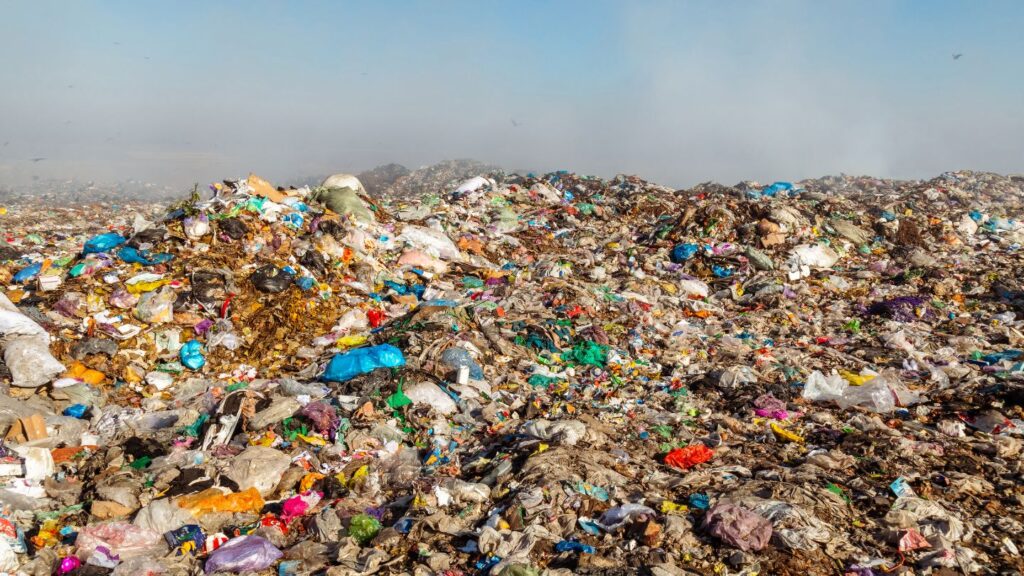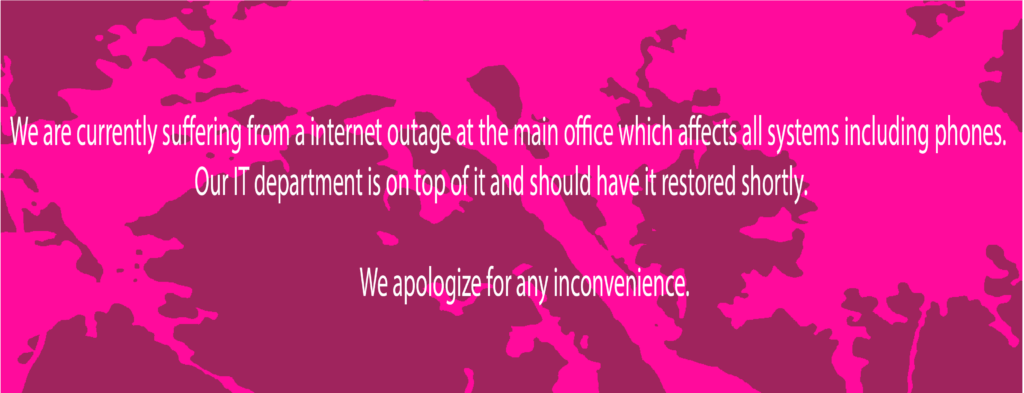Effective waste management is a cornerstone of environmental preservation and sustainability. How societies handle waste directly influences air quality, soil health, and marine ecosystems. Implementing responsible disposal methods reduces the strain on landfills, minimizes greenhouse gas emissions, and supports resource recovery through recycling and composting. Sustainable practices also encourage innovation in circular economy models, where waste becomes a resource rather than a burden. In this blog, we’ll explore how proper waste management protects the planet and contributes to a cleaner, more resilient environment.
Key Takeaways
- Proper waste management practices, including recycling and composting, are crucial for reducing landfill waste and greenhouse gas emissions.
- Effective waste management conserves natural resources, supports the economy through job creation, and promotes a circular economy to enhance sustainability.
- Community engagement and awareness are essential components of sustainable waste management, fostering responsibility and improving public health while mitigating environmental impacts.
Reducing Landfill Waste

Reducing landfill waste is a cornerstone of sustainable waste management. Strategies that play a crucial role in minimizing the amount of waste that ends up in landfills include:
- Recycling
- Composting
- Reusing products
- Reducing single-use items
Diverting waste from disposal sites conserves natural resources and significantly reduces greenhouse gas emissions, particularly methane, a potent greenhouse gas contributor to climate change. Understandingtrash pick-up dos and don’ts can also help communities optimize waste diversion efforts and stay compliant with local waste protocols.
Effective waste management practices rely heavily on community engagement. When communities actively participate in waste reduction initiatives, the collective effort leads to more substantial results in minimizing landfill contributions. This not only reduces the environmental impact but also fosters a sense of responsibility and environmental stewardship among community members.
Promoting environmental sustainability heavily depends on proper waste management practices. Reducing waste volume and ensuring appropriate disposal help mitigate adverse environmental impacts like soil and water contamination, contributing to a more sustainable future.
Reducing landfill waste involves a holistic approach integrating waste reduction, community engagement, and responsible consumption. This comprehensive strategy is essential for long-term environmental sustainability and a healthier planet for future generations.
Conserving Natural Resources

Effective waste management plays a pivotal role in conserving natural resources. Reducing the demand for raw materials preserves ecosystems and minimizes resource extraction, thereby reducing environmental degradation. Recycling enables the reuse of waste materials, such as paper, metal, and plastics, thereby contributing to resource conservation and significantly lowering energy requirements.
Proper waste management practices conserve natural resources, promote environmental sustainability, and lead to cost savings and economic opportunities. Recycling metals and recycling paper reduces the need for new raw materials, conserving valuable resources and lowering production costs. It benefits the environment and supports the economy by creating jobs in recycling and waste management sectors.
The concept of a circular economy is central to sustainable waste management. By promoting resource reuse and reducing pollution, a circular economy supports long-term environmental sustainability and helps mitigate climate change. This approach ensures that resources are used efficiently and waste is minimized, leading to significant environmental benefits.
Conserving natural resources through effective waste management is crucial for the well-being of our planet and future generations. Adopting sustainable practices helps protect natural resources, reduce our environmental footprint, and contribute to the conservation of natural resources for a more sustainable and prosperous future.
Preventing Pollution
Preventing pollution is a critical aspect of sustainable waste management. Key points include:
- Sanitary landfills use specialized lining and gas collection systems to prevent waste leakage.
- These measures protect soil and groundwater from contamination.
- Improper waste management can cause hazardous materials to leach.
- Leaching poses severe health risks and compromises environmental quality.
Air pollution from improper waste disposal is another significant concern. The open burning of waste and the release of harmful substances into the atmosphere can lead to respiratory diseases and other health complications. Additionally, organic waste that is not properly managed can attract pests, increasing the risk of diseases such as leptospirosis and salmonella. Furthermore, environmental pollution exacerbates these issues.
Water contamination from improper waste disposal can have devastating effects on public health. Contaminated water sources can lead to waterborne diseases, including cholera and typhoid fever, which pose significant health risks to affected communities. Soil contamination from waste can also compromise food safety, as toxic substances can be absorbed by crops, leading to health issues for consumers. Additionally, water pollution remains a critical concern that exacerbates these challenges.
Proper waste management practices are essential for preventing pollution and protecting air, water, and soil quality from harmful substances. Safely disposing of hazardous waste materials mitigates environmental impacts and promotes a healthier, more sustainable future, as emphasized by the Environmental Protection Agency.
Mitigating Climate Change
As one of the most pressing global challenges, climate change sees significant involvement from the waste management sector. Key points include:
- Landfills contribute approximately 5% of global greenhouse gas emissions.
- Methane is a major component of these emissions.
- Methane is over 80 times more effective than carbon dioxide at trapping heat in the short term.
- Reducing methane emissions is crucial for climate mitigation.
The composition of waste directly influences methane production in landfills, with organic waste constituting around 65% of the total waste generated globally. Innovative waste diversion strategies, such as composting and anaerobic digestion, help minimize methane emissions from organic waste and contribute to reducing greenhouse gas emissions.
Implementing stringent waste management regulations can significantly lower methane emissions from landfills over time. For example, in 2018, recycling and composting efforts in the U.S. prevented the emission of over 193 million metric tons of carbon dioxide, highlighting the impact of sustainable waste management practices on climate change mitigation.
Sustainable waste management practices reduce greenhouse gas emissions while promoting environmental sustainability and a sustainable future. Diverting waste from landfills and converting it into energy or new products significantly mitigates environmental impacts and supports global efforts to combat climate change.
Enhancing Energy Efficiency
Sustainable waste management significantly enhances energy efficiency. Recycling plastic products, for example, can save significant energy. Just 10 recycled plastic bottles can provide over 25 hours of laptop usage. This demonstrates the substantial energy savings that can be achieved through recycling and waste reduction.
Efficient waste management reduces the carbon footprint by minimizing waste disposal truck trips, thereby lowering fuel use and greenhouse gas emissions. Waste-to-energy technologies further enhance energy efficiency by converting waste into usable energy, reducing reliance on fossil fuels, and lowering overall carbon emissions.
Recycling and waste-to-energy practices enhance energy efficiency and contribute to the overall environmental sustainability of waste management strategies. By reducing the amount of waste sent to landfills and maximizing resource recovery, these practices promote a more sustainable and energy-efficient future.
In summary, enhancing energy efficiency through sustainable waste management practices is essential for reducing the environmental impact of waste and promoting a more sustainable future. Adopting these practices conserves valuable resources, reduces our carbon footprint, and supports global efforts to mitigate climate change.
Supporting Biodiversity
Supporting biodiversity is another crucial aspect of sustainable waste management. Plastic waste in aquatic environments poses a severe risk to marine life, as animals often mistake it for food, leading to ingestion and potential death. Irresponsible waste management can cause irreversible damage to ecosystems and wildlife health.
Entanglement in plastic waste is a significant threat to various wildlife, including seabirds and marine creatures. Additionally, plastic debris can smother coral reefs, adversely affecting aquatic ecosystems and contributing to habitat destruction. Improper green waste disposal can introduce invasive species that threaten native biodiversity, underscoring the importance of responsible waste management.
Contamination of waterways with waste makes it difficult for marine animals to identify food, often resulting in death. Nanoplastics can accumulate in the bodies of organisms, potentially leading to neurological and reproductive issues. Sustainable waste practices protect ecosystems by reducing the need for new raw materials and minimizing plastic pollution.
Supporting biodiversity through sustainable waste management is vital for maintaining healthy ecosystems and protecting wildlife. Reducing pollution and promoting responsible waste disposal safeguards biodiversity and contributes to a more sustainable and resilient environment.
Promoting Public Health
Proper waste management critically benefits public health. Improper waste disposal increases risks of respiratory diseases, chemical burns, and long-term health complications. Living near improperly managed waste disposal sites can lead to diseases such as malaria, dengue fever, respiratory issues, and skin diseases. Improper disposal of medical waste can exacerbate these health risks.
Open dumps significantly threaten public health due to contaminated water and air pollution. Inadequate municipal solid waste management leads to significant environmental and public health costs, affecting the surrounding population. Illegal dumping of uncollected organic waste creates breeding grounds for disease-transmitting rodents and insects, resulting in further health issues.
The open burning of waste increases health risks, contributing to respiratory diseases, throat infections, and allergies. Proper waste management promotes public health by reducing pollution and minimizing harmful chemicals in the environment.
Promoting public health through sustainable waste management is vital for ensuring a healthier and safer environment for all. Adopting proper waste disposal methods and reducing pollution protects human health and improves the quality of life for communities worldwide.
Encouraging Community Engagement
Community engagement is crucial for promoting environmental sustainability. Improper waste disposal detrimentally affects mental health, increasing anxiety and stress within affected communities. Marginalized communities often bear a disproportionate burden from the health impacts of inadequate waste management.
Sustainable practices improve community health by:
- Reducing pollution and harmful chemicals
- Building community awareness around waste reduction
- Promoting positive public attitudes and public awareness campaigns
Engagement strategies can include educational campaigns, workshops, and local initiatives, such as cleanup events and recycling programs. Community members adopting sustainable practices foster a culture of environmental responsibility that can influence others. Policies such as littering fines can discourage improper waste disposal behaviors among community members.
Encouraging community engagement is crucial for achieving long-term environmental sustainability. Fostering responsibility and promoting sustainable practices significantly amplify waste management efforts and contribute to a healthier, more sustainable future.
Business Benefits of Sustainable Waste Management
Adopting sustainable waste management practices enhances business operational efficiency through streamlined processes and reduced waste generation. Implementing sustainable waste practices leads to significant savings by reducing waste volume and reusing or recycling materials, ultimately lowering disposal fees.
Sustainable waste management improves a company’s corporate image and enhances social responsibility, fostering trust and loyalty among customers. Demonstrating a commitment to environmental sustainability attracts environmentally conscious consumers and provides a competitive edge in the market.
Businesses adopting sustainable waste management practices contribute to the broader goal of environmental sustainability. Reducing their environmental impact and promoting responsible waste disposal, businesses play a key role in creating a more sustainable future for all.
The business benefits of sustainable waste management are multifaceted, including operational efficiency, cost savings, and an improved corporate image. Adopting sustainable practices enhances business competitiveness and contributes to a healthier, more sustainable environment.
Advancing Sustainable Practices
Advancing sustainable waste management practices is essential for environmental protection and resource conservation. Sustainable waste management practices support long-term environmental sustainability and mitigate climate change. International collaboration in waste management addresses global challenges and shares best practices, fostering collective environmental protection efforts.
Proper waste disposal increases the chance for significant environmental changes, addressing issues such as pollution, habitat destruction, and resource depletion. Adopting sustainable practices substantially impacts the environment and supports the well-being of current and future generations.
Advancing sustainable waste management requires a commitment to environmental awareness and responsible consumption. Promoting sustainable practices reduces our environmental footprint and contributes to a more sustainable and resilient future for all.
Advancing sustainable waste management practices is vital for addressing global environmental challenges and promoting long-term sustainability. Adopting more sustainable practices protects natural resources, reduces pollution, and creates a healthier, more sustainable future for generations to come.
Building a Cleaner, Greener Future
Proper waste management is one of the most effective ways to protect the environment and promote sustainability. By reducing landfill dependency, recycling materials, and adopting eco-friendly disposal methods, communities can significantly cut pollution and conserve natural resources. Responsible waste practices not only safeguard ecosystems but also create healthier living conditions and support long-term environmental balance.
At Red Oak Sanitation, we are dedicated to advancing sustainability through reliable waste removal in Atlanta. Our commitment to eco-conscious collection and disposal helps residents and businesses minimize their environmental footprint while maintaining clean, safe surroundings. Partner with us for efficient, environmentally responsible waste management that keeps your community green and thriving.
Frequently Asked Questions
What are the main strategies to reduce landfill waste?
To effectively reduce landfill waste, focus on recycling, composting, reusing products, and minimizing single-use items. Implementing these strategies can significantly lessen waste and promote sustainability.
How does effective waste management help conserve natural resources?
Effective waste management conserves natural resources by reducing the demand for raw materials, thereby preserving ecosystems and minimizing the need for resource extraction. This practice leads to substantial environmental benefits.
What are the health risks associated with improper waste disposal?
Improper waste disposal poses serious health risks, including respiratory diseases, chemical burns, and waterborne illnesses, particularly affecting communities near unmanaged waste sites. Ensuring proper waste management is vital for public health and environmental safety.
How can businesses benefit from adopting sustainable waste management practices?
Businesses can significantly enhance operational efficiency and reduce costs by adopting sustainable waste management practices. This approach not only improves their corporate image but also fosters customer trust and loyalty.
What role does community engagement play in promoting sustainable waste management?
Community engagement plays a vital role in promoting sustainable waste management by raising awareness and encouraging responsible consumption through local initiatives like cleanup events and recycling programs. Actively involving the community fosters a sense of ownership and responsibility towards waste management practices.



